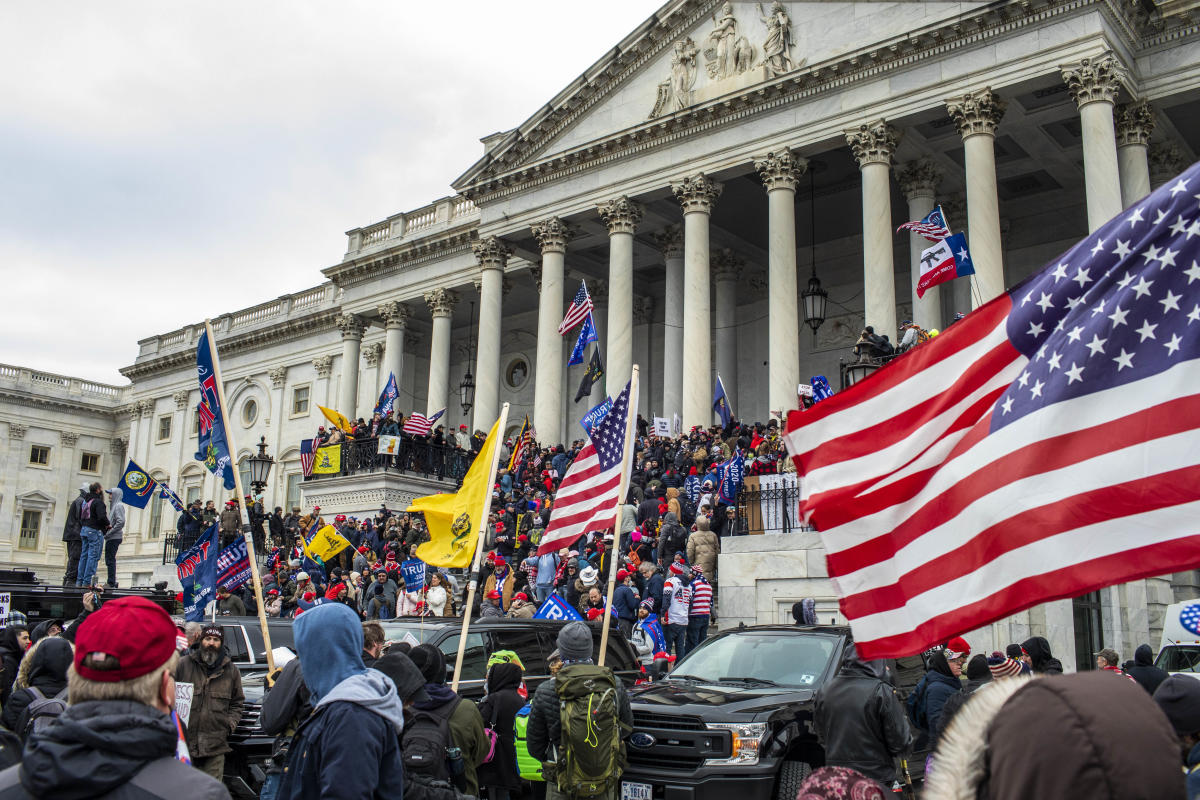Even as a House select committee prepared on Monday to recommend criminal charges in connection with a series of attempts to overturn the 2020 election, the Justice Department has not relented in its own investigation of the culmination of those efforts: the mob attack on the Capitol on Jan. 6, 2021.
The inquiry into the Capitol assault is the largest criminal investigation in the department’s history and has shown no signs of slowing down. More than 900 people, from nearly every state, are now facing charges, and prosecutors have indicated that hundreds more cases could be filed.
While most of the charges brought have been for petty offenses such as disorderly conduct or illegally parading in the Capitol, more than 280 people have been accused of assaulting or resisting the police, including about 100 who are facing additional charges of using a deadly or dangerous weapon or causing bodily injury to officers.
Sign up for The Morning newsletter from the New York Times
In addition, 290 people have been charged with obstructing an official proceeding in front of Congress — the count that prosecutors have used to describe how the mob disrupted the certification of the election that was taking place at the Capitol on Jan. 6. Last week, a federal appeals court was asked to toss the charge in all of the cases by defense lawyers who claim it was improperly used.
Nearly 40 defendants have gone to trial in Jan. 6-related cases, and only one of them — a former government contractor from New Mexico — has been fully acquitted. All of the trials have taken place in U.S. District Court in Washington, which sits within sight of the Capitol building. In the most prominent trial so far, Stewart Rhodes, the leader of the Oath Keepers militia, was convicted along with one of his lieutenants of seditious conspiracy.
The sentences handed down by judges in the cases have varied widely. Many, if not most, of the defendants who were charged with minor crimes and pleaded guilty have faced no jail time. The stiffest sentence issued so far — a 10-year prison term — was given to a former New York City police officer who swung a metal flagpole at a Washington officer during the attack.
In a separate investigation, a special counsel, Jack Smith, is examining the roles that former President Donald Trump and several of his allies played in seeking to overturn the results of the election. While that inquiry has many tentacles, one of the chief lines of investigation concerns an expansive plan to create false slates of electors pledged to Trump in seven key swing states that were actually won by Joe Biden.
© 2022 The New York Times Company


